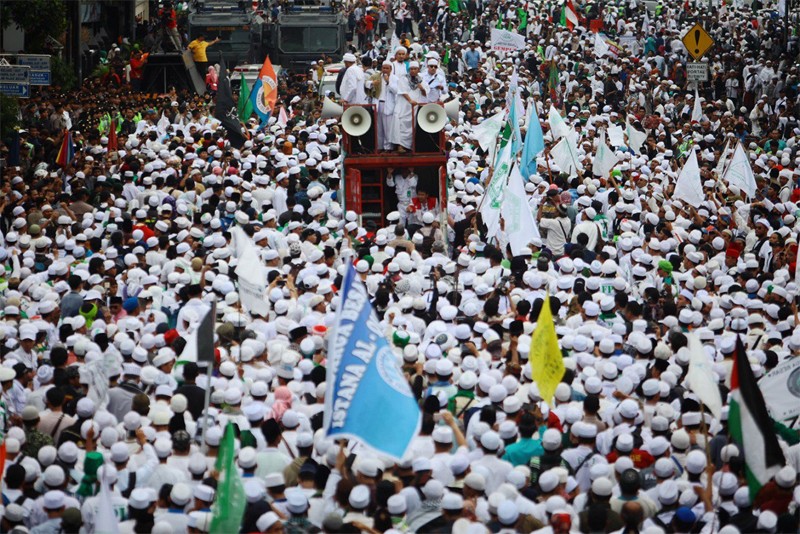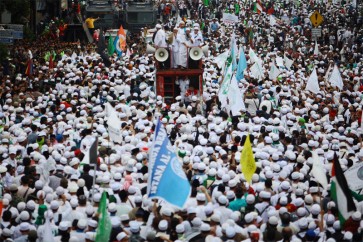Popular Reads
Top Results
Can't find what you're looking for?
View all search resultsPopular Reads
Top Results
Can't find what you're looking for?
View all search resultsCommentary: Can Jokowi stem the tide of Islamic populism?
The problem is that some of preconditions for a populist Islam revival are already there.
Change text size
Gift Premium Articles
to Anyone
T
here is no escaping the wave of Islamic populism that is now sweeping the country and is set to play a key role in the upcoming legislative and presidential elections.
The old-fashioned political Islam that places the idea of establishing a sharia state as its core ideology and main selling point is over. For many Muslim voters today — like the angry white voters of Donald Trump in the United States or the staunch supporters of Recep Tayyip Erdogan in Turkey — what matters the most is greater access to political and economic resources, not a formalization of “the divine laws.”
The sociopolitical implications of the rise of Islamic populism are huge, though its symptoms had been largely ignored until last year when hundreds of thousands of Muslims took to the streets of Jakarta to call for the prosecution of then-Jakarta governor Basuki “Ahok” Tjahaja Purnama, a Christian of Chinese descent, for blaspheming Islam.
Political scientist Vedi Hadiz, who studied Islamic populism in Egypt, Turkey and Indonesia, defines Islamic populism as a cross-class alliance involving the budding but repressed middle classes among Muslim societies, the swelling number of urban poor and small sections of powerful bourgeoisie who want to grab electoral victories.


















